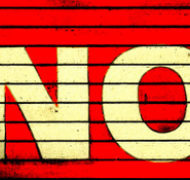The Cost of Not Failing
Blog / Produced by The High Calling
With a video camera set up in his bedroom, a desk, and a white backdrop that doubled as a curtain for the sliding door to his backyard, Duke Fightmaster began his quest to become the next Conan O’Brien. Many of his jokes hit their mark, and over the following weeks an audience of friends and strangers in his bedroom grew for his weekly show that aired on YouTube, thanks to the help of volunteers.
After only one episode, Duke quit his hated desk job, relying completely on his wife’s income as he ran after his late night comedy dream. For a period of time, there were positive signs that things could work—at least in the eyes of Duke. The audience grew. The views for each episode on YouTube climbed into the hundreds of thousands. Local reporters stopped by his show and wrote stories about this unlikely comedian.
As the weeks turned into months and the months into years, Duke and his wife watched their savings evaporate. Without his income, they lost their home and their car. The quality of the show began to suffer as sponsors remained elusive and friends began to stand Duke up. Duke succumbed to daily panic attacks, his wife only spoke to him as a guest on the show, and many of his volunteer writers quit.
The popular NPR radio program This American Life reported on Duke’s story, and when offering his own commentary, he said this:
“You know, anyone who makes it in this life at anything, you always hear, has to go through hell. So I figured, ‘I'll just go through hell.’ I remember my friend who worked in real estate worked for one of those cheesy real estate motivators that used to yell out, "You have to have a breakdown to have a breakthrough.’ So I was thinking, ‘OK, I've had my breakdown, so now I'm going to actually break through to some new level.’”
Rather than breaking through, Duke continued to fall apart.
We could say a lot about what Duke did wrong from an entrepreneurial perspective, but I think Duke’s story has a lot to teach us about the benefits of failure and the cost of not failing. In fact, I can see a bit of myself in Duke.
Striking out with my own business, I faced a lot of the same fears and difficulties as Duke. When you try a new line of work and it doesn’t pan out, it hits your self-esteem and puts a lot of stress on your relationships with the people who matter most. At a certain poin,t I had to admit that my “plan A” hadn’t brought in the kind of money we needed.
I had to declare that Plan A failed.
However, when I hit rock bottom, my wife said something incredibly wise: “This doesn’t mean you can’t make this dream happen someday. It just needs to look a little different for now.”
As I reorganized my thoughts and sought advice from friends, I found some wonderful benefits from my failure. I’m not saying it was a pleasant process, but failure brought so many insights that I would never trade away those uncertain, difficult times.
Having to admit defeat and regrouping provided important lessons about what we stand to lose if we refuse to quit. When we refuse to fail, we rob ourselves of important lessons, cause stress for ourselves and our families, and prevent ourselves from taking important steps forward.
Failure doesn’t have to be the end, provided we understand that the seeds of tomorrow’s success are often found in the dirt of yesterday’s failure.
Image by Stephen Heron. Used with permission. Sourced via Flickr. Post by Ed Cyzewski.





